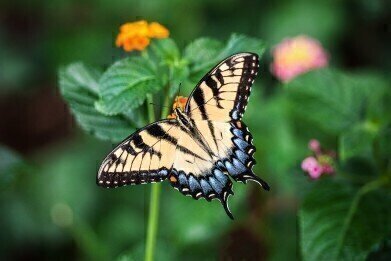Environmental Laboratory
How Does Climate Change Affect Insects?
May 04 2019
New research encompassing 50 years’ worth of studies has concluded that the insect population will have “no place to hide” from the harmful effects of climate change. After examining the emergence times of aphids, butterflies and moths, as well as the first hatching of birds’ eggs between 1965 and 2012, the authors of the review found that even shaded areas of woodland would not offer any respite from climate change.
The overall trend resulting from shifting patterns of weather is a fall in insect populations, which could have a disastrous effect on the entire eco-system of the world. Not only do insects provide a vital food source for many small predators (which in turn are the prey of larger animals), but they also provide a valuable cross-pollination service with regard to plants and crops.
Out of sync
The study, which was published in the journal Global Change Biology, found that insects and birds across the board were emerging several weeks ahead of custom, causing them to become out of sync with the rest of the natural world. Aphids, which breed very quickly, were an average of one month earlier in emerging than they were in 1965, while birds, butterflies and birds all emerged one or two weeks ahead of schedule as well.
While an improved ability to predict long-term weather forecasts among humans is beneficial towards mitigating the harmful effects of climate change, it can become damaging in the plant and animal kingdom when only some species are capable of adjusting their life cycle patterns. This is because it can result in desynchronization with other flora and fauna, having potentially massive repercussions.
For example, aphids can transmit viruses to plants, and if they do so when the plants are in their infancy, they will be much more susceptible to infection. Similarly, predators may find that there is a surplus or dearth of prey according to the calendar, causing a cascading effect throughout the entire food chain.
Falling numbers across the board
The bottom line of all this is that climate change is having a catastrophic impact on insect populations in the UK and beyond. A recent study revealed a 55% decrease in upland bee species in the UK, while other pollinating insects were also absent from a quarter of the territories they inhabited 50 years ago.
Elsewhere, a study from the Netherlands showed that Dutch populations of butterflies had plummeted by 84% or more in the last 130 years, while other reports from Germany and Puerto Rico also showed declining insect populations over the last quarter of a century. Perhaps most concerning of all, it appears that even sheltered and shaded areas of land, such as forests and woodlands, do not offer any succour from climate change.
“Under global warming you would expect woodlands to have some protection for insects, a buffer against change,” explained James Bell, lead author on the most recent review. “But we didn’t see that. It is the major surprise and is disturbing. There is really no place to hide against the effects of global warming if you are an insect in the UK.”
Digital Edition
AET 28.2 April/May 2024
May 2024
Business News - Teledyne Marine expands with the acquisition of Valeport - Signal partners with gas analysis experts in Korea Air Monitoring - Continuous Fine Particulate Emission Monitor...
View all digital editions
Events
Jul 30 2024 Jakarta, Indonesia
China Energy Summit & Exhibition
Jul 31 2024 Beijing, China
2024 Beijing International Coal & Mining Exhibition
Aug 07 2024 Beijing, China
IWA World Water Congress & Exhibition
Aug 11 2024 Toronto, Canada
Aug 25 2024 Stockholm, Sweden and online









.jpg)








